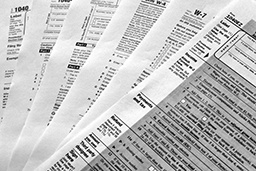In response to the COVID-19 pandemic, the California Department of Insurance has issued a notice granting a tax-filing extension to insurers and surplus lines brokers meeting certain requirements. Michelman & Robinson explains the extent of the relief and how carriers should go about obtaining it.
Q. What is the scope of the CDI’s tax-filing extension?
A. Pursuant to an emergency order, Commissioner Ricardo Lara has granted a three-month extension to file premium tax returns and pay required premium taxes. This extension is automatic and reserved for any insurer or surplus lines broker that files a premium tax return requiring the payment of less than $1M in premium tax based on the 2019 annual tax liability. In addition, the CDI is providing automatic relief from any penalty or interest that would otherwise apply to an insurer or surplus lines broker that qualifies for the extension.
Q. What is the effective date of the automatic extension and how long will it last?
A. The automatic extension is retroactive to March 30, 2020, and remains in effect for any premium tax return or premium tax payment of less than $1M due on or before July 31, 2020.
Q. For carriers that qualify for the automatic extension, what are the new due dates?
A. The new insurance company due dates are as follows:
- 2019 Annual Tax, 2019 Retaliatory Tax, and 2020 first quarter payment—originally due on April 1, 2020—are now due on July 1, 2020
- 2020 second quarter payment—originally due on June 1, 2020—is now due on September 1, 2020
- 2019 Annual Tax (Ocean Marine Insurance Tax)—originally due on June 15, 2020—is now due on September 15, 2020
Q. For surplus line brokers that qualify for the automatic extension, what are the new due dates?
A. The new surplus line broker due dates are as follows:
- Payment for business transacted during the month of December 2019 and 2019 Annual Tax—originally due on March 1, 2020—is now due on June 1, 2020
- Payments for business transacted during the months of January, February, March, and April 2020—originally due on April 1, May 1, June 1, and July 1, 2020, respectively—are now due on July 1, August 1, September 1, and October 1, 2020, respectively.
Q. What if I am an insurer or surplus lines broker that does not qualify for the automatic relief, can I still file for an extension?
A. Yes, an insurer or surplus lines broker that does not qualify for the CDI’s automatic extension, but is nevertheless unable to meet applicable deadlines, may request an extension to file its premium tax return and pay required minimum taxes, so long as the request is filed before the applicable filing deadline.
Q. If I file such a request for an extension, how will I know if I received it?
A. The CDI will handle individual requests for extension on a case-by-case basis and directly notify each taxpayer as to whether its request has been approved or denied. Carriers and surplus lines brokers should send their extension requests as follows:
- By email to the Department of Insurance Premium Tax Audit Unit at [email protected]
- Or by mail to California Department of Insurance, Premium Tax Audit Unit, 300 South Spring Street, 9th Floor, Los Angeles, CA 90013
Q. What authority does the CDI have to grant tax-filing extension?
A. By way of an executive order signed on March 30, 2020, California Governor Gavin Newsom granted authority to the California Department of Tax and Fee Administration to extend the time for filing tax returns and payment of taxes that it oversees for a period of up to three months after the due date of the tax return or payment of any required taxes of less than $1M. It is this executive order that allows the CDI to provide its current tax relief.
Q. Is there anything else insurers and surplus lines brokers should know about the CDI’s notice?
A. Yes, the CDI reminds taxpayers that if an extension is not granted automatically, or if an individual extension request is not approved in writing, late tax payments are subject to penalties and/or interest.
This blog post is not offered, and should not be relied on, as legal advice. You should consult an attorney for advice in specific situations.

